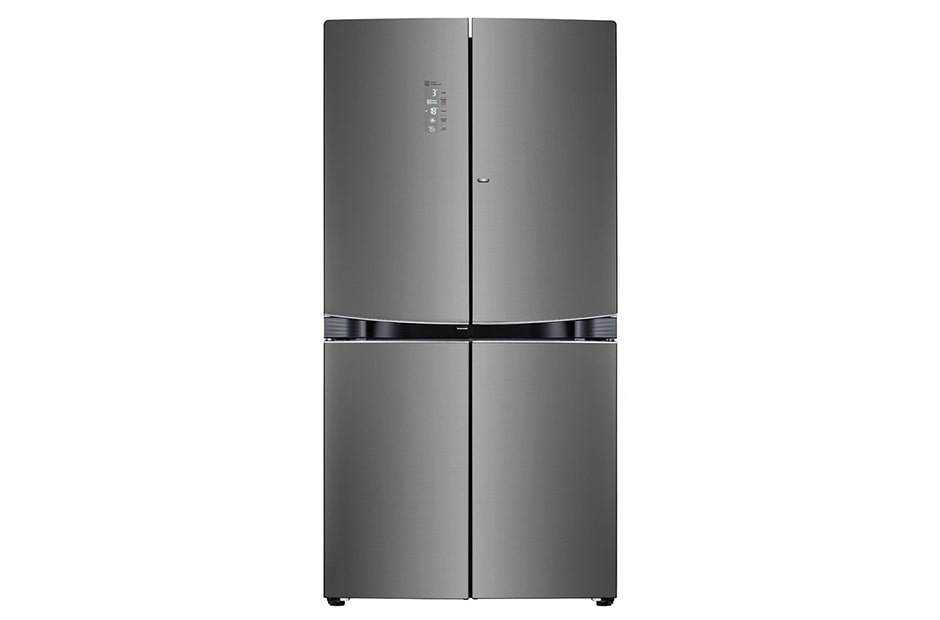When your LG fridge isn’t cooling properly, it can be more than just a minor inconvenience. It may lead to food spoilage, increased energy costs, and the hassle of dealing with repairs. At TheKitchenApplianceDad.com, we understand the importance of keeping your fridge in top working order. In this blog post, we’ll delve into the common reasons your LG fridge might be experiencing cooling issues, and offer practical solutions to get it back up and running.
Understanding the Basics of Fridge Cooling
Before diving into troubleshooting, it’s essential to understand how your fridge maintains its cool environment. Fridges use a combination of compressors, coolant, evaporators, and fans to extract heat from the inside and release it outside. Any malfunction in this system can lead to cooling problems.

Common Causes of Cooling Issues in LG Fridges
1. Power Supply Problems
Check the Basics:
- Ensure that your fridge is properly plugged in.
- Verify that the power outlet is functioning by plugging in another appliance.
2. Incorrect Temperature Settings
Adjust the Settings:
- The ideal temperature for fridge compartments is about 37°F (3°C), and for freezers, it’s 0°F (-18°C).
- Adjust the temperature settings on your LG fridge if they are set higher than recommended.
3. Blocked Air Vents
Clear the Path:
- Overpacking your fridge can block air vents, restricting airflow and leading to uneven cooling.
- Rearrange items to ensure that air can circulate freely.
4. Dirty Condenser Coils
Routine Maintenance:
- Condenser coils dissipate heat from the fridge. When they’re covered in dust, the efficiency of this process is reduced.
- Clean the coils every six months using a vacuum or a brush. Here’s a guide on how to clean them.
5. Faulty Door Seals
Inspect and Replace:
- Worn or damaged door seals can allow cool air to escape, forcing your fridge to work harder.
- Check the seals for any gaps or tears and replace them if necessary.
6. Defective Components
Professional Help Needed:
- Thermostat: If the thermostat is faulty, it won’t signal the compressor to start.
- Compressor: A failing compressor can result in poor cooling.
- Evaporator Fan: This fan circulates cold air inside the fridge. If it’s not working, the fridge won’t cool evenly.
- Start Relay: If this part is defective, the compressor might not run at all.
7. Frost Build-up
Defrost System Issues:
- Excessive frost can impact the efficiency of the evaporator coil.
- Check if the automatic defrost system is working. If not, manual defrosting might be necessary.
Troubleshooting Steps for a Non-Cooling LG Fridge
Follow these steps to diagnose and possibly fix your LG fridge:
- Step 1: Verify that the fridge is receiving power and that all settings are correct.
- Step 2: Inspect the door seals, and make sure the fridge doors close tightly.
- Step 3: Check and clean the condenser coils.
- Step 4: Ensure that the air vents are not obstructed.
- Step 5: Listen for the normal operation sounds of the compressor and the evaporator fan.
- Step 6: If comfortable, inspect the thermostat, start relay, and other accessible components for obvious damage or wear.
If these steps do not resolve the issue, it may be time to call a professional. LG offers a support page that can help you find a certified repair service (LG Support).
Preventive Measures to Avoid Future Cooling Issues
- Regular Maintenance: Clean the condenser coils and check the door seals bi-annually.
- Proper Usage: Avoid overloading the fridge or blocking air vents.
- Check Settings Regularly: Make sure the temperature settings haven’t been inadvertently changed.
Key Takeaways from TheKitchenApplianceDad.com
- Power and Settings: Always check that your LG fridge is powered and set to the correct temperatures.
- Maintenance is Key: Regular cleaning of condenser coils and checking door seals can prevent many cooling issues.
- Component Check: Be aware of the signs that indicate a failing component, such as unusual noises or uneven cooling.
- Professional Help: Don’t hesitate to contact a professional if the problem persists despite your troubleshooting efforts.
Understanding why your LG fridge is not cooling can save you from the frustration of dealing with spoiled food and unexpected repairs. By following the troubleshooting steps outlined above, you can often resolve the issue yourself orknow when to seek professional help. Stay cool and keep your fridge running smoothly with these tips from TheKitchenApplianceDad.com.


